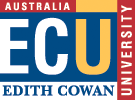COURSE INFORMATION
Disclaimer
This course information may be updated and amended immediately prior to semester. To ensure you have the correct outline, please check it again at the beginning of semester.
| C56 Bachelor of Counselling | ||||||||||||||||||||||||||||||||||||||||||||||||||||||||||||||||||||||||||||||||||||||||||||||||||||||||||||||||||||||||
The Bachelor of Counselling provides students with theoretical foundations, beginning therapeutic skills and first self-reflective clinical practice proficiency in counselling. This 360 credit point degree comprises 24 units. It affords students the opportunity to learn a range of interpersonal competencies: communication, interpersonal skills, teamwork, self reflection, negotiation and conflict resolution skills. This course prepares students for a range of entry level human services positions which utilise counselling and is preparatory for those wishing to pursue postgraduate studies in Counselling and Psychotherapy. |
||||||||||||||||||||||||||||||||||||||||||||||||||||||||||||||||||||||||||||||||||||||||||||||||||||||||||||||||||||||||
| ADMISSION REQUIREMENTS Standard ECU admission requirements. |
||||||||||||||||||||||||||||||||||||||||||||||||||||||||||||||||||||||||||||||||||||||||||||||||||||||||||||||||||||||||
| COURSE LOCATION This course is available on Joondalup Campus. |
||||||||||||||||||||||||||||||||||||||||||||||||||||||||||||||||||||||||||||||||||||||||||||||||||||||||||||||||||||||||
| MODE OF STUDY This course is available by Full-time, or Part-time mode. |
||||||||||||||||||||||||||||||||||||||||||||||||||||||||||||||||||||||||||||||||||||||||||||||||||||||||||||||||||||||||
| MODE OF DELIVERY This course is available in the following modes of delivery - On-campus, and Online. |
||||||||||||||||||||||||||||||||||||||||||||||||||||||||||||||||||||||||||||||||||||||||||||||||||||||||||||||||||||||||
| COURSE STRUCTURE Counselling is an area of scholarship germane to a range of human contact professions. The Bachelor of Counselling consists of 360 credit points (24 units). It comprises 12 core units in Counselling and 12 units in a related discipline/s. Over the course of the degree, students may not undertake more than 150 credit points at the first year level. Students must complete a minor OR a supporting major plus electives. Students studying a Bachelor of Counselling may choose their Minor, Supporting Major, or Major from Social Sciences, Arts or Business. Counselling, with its focus on human behaviour and relationships, is ideally suited for study in combination with many other discipline areas. Counselling fits well, having an application with disciplines: Addiction Studies, Children and Family Studies, Criminology, Education, Human Resources, Social Work and Youth Work amongst many others. Students majoring in Counselling may wish to discuss their Minor and Elective program with the Course Coordinator or Student Information Officer. |
||||||||||||||||||||||||||||||||||||||||||||||||||||||||||||||||||||||||||||||||||||||||||||||||||||||||||||||||||||||||
| ||||||||||||||||||||||||||||||||||||||||||||||||||||||||||||||||||||||||||||||||||||||||||||||||||||||||||||||||||||||||
Last Updated - Higher Education: 15/03/2014 VET: 14/05/2014
